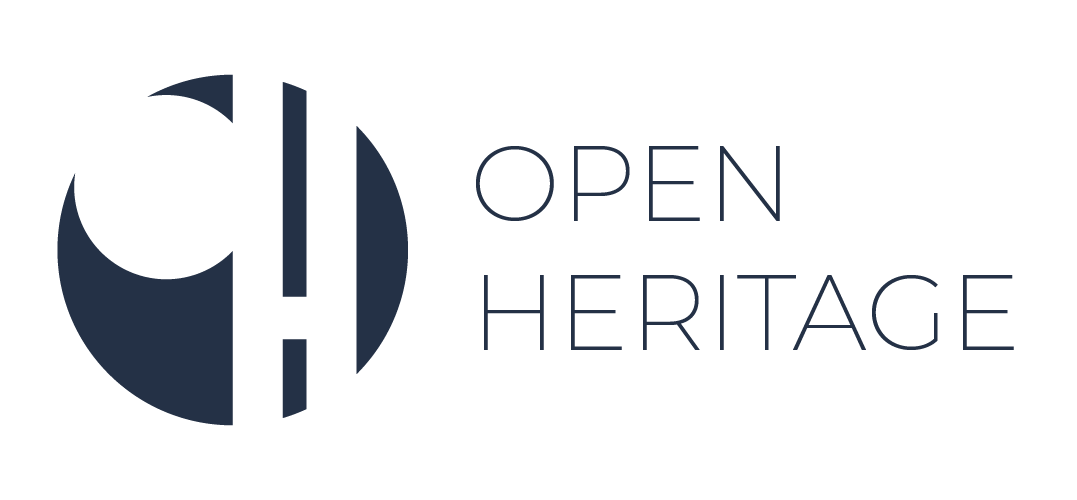The OpenHeritage Dialogues is a series of three interactive workshops focusing on key aspects of adaptive heritage reuse while sharing and discussing OpenHeritage results with relevant stakeholders and multipliers.
The Dialogue series was finalised in May 2021, after delivering three workshops on the following topics:
- First OH Dialogue “Adaptive Heritage Reuse: Policy contexts across Europe”
- Second OH Dialogue “Sharing and Caring: Partnerships for Adaptive Heritage Reuse”
- Third OH Dialogue “Financing the Adaptive Reuse of Cultural Heritage: Tools & Strategies”
Missed the workshops? Scroll down and watch recordings of selected Dialogues’ sessions!
Do you have any questions about the OH Dialogues? Contact us at: dialogues@openheritage.eu
Past Dialogues
Third OH Dialogue “Financing the Adaptive Reuse of Cultural Heritage: Tools & Strategies”
20 May 2021 | online
The third OpenHeritage Dialogue was dedicated to financing tools and strategies for the adaptive reuse of cultural heritage. How can we develop public-private-people partnerships that strengthen our urban and cultural commons? How can crowdfunding, organic transformations or impact investment support the sustainability of cultural organisations? During the Dialogue, we offered practical insights into complementary funding models and tips for fundraising, shared by representatives of innovative Observatory Cases and Heritage Labs across Europe. See and download all presentations here.
Watch the recording from the Dialogue’s opening and final session on the OpenHeritage facebook page or here below.
Second OH Dialogue “Sharing and Caring: Partnerships for Adaptive Heritage Reuse”
12 November 2020 | online
The adaptive reuse of historical buildings represents an opportunity and, at the same time, also a challenge, especially when we talk about community-led reuse processes. When various stakeholders are involved, such as NGOs, local communities, different public bodies, private investors, and heritage professionals, it is not that easy to reach consensus or even regulate the decision-making process. At the same time, community-led reuse of heritage spaces can potentially bring many benefits to cities. These spaces can become central places of community organization and cultural exchange, crucial when working towards social cohesion and integration, enriching the welfare services provided by public authorities.
So how can municipalities work together with civic initiatives in supporting the community-led reuse of heritage spaces? How can built heritage be an asset for the cities, and how can public-private-people partnerships benefit heritage? What is the potential of historical buildings to be more than just monuments to preserve? The discussion of the second OpenHeritage Dialogue explored these questions in various policy environments across Europe, in small towns as well as in big cities, focusing on good practices of establishing partnerships, and strategies to overcome challenges.
Watch the recording from the Dialogue’s opening session on the OpenHeritage and Cooperative City facebook pages or here below. See and download all presentations here.
The second OpenHeritage Dialogue was co-produced by OpenHeritage and Cooperative City. The workshop was organised by ICLEI and co-organised by CEU, Eutropian, and MRI.
First OH Dialogue “Adaptive heritage reuse: Policy contexts across Europe”
22 September 2020 | online
The OpenHeritage project kicked-off its first Dialogue by reflecting on current adaptive heritage reuse policies in Europe.
Adaptive heritage reuse is becoming more and more popular, it has emerged as a policy aim in several national policy frameworks and in EU governance. OpenHeritage has investigated and mapped heritage reuse policies and governance frameworks in fifteen countries across Europe, to understand how different contexts can support or impede adaptive heritage reuse.
So what are the good practices and supportive measures? Which barriers and bottlenecks have been identified? What conditions are essential to facilitate adaptive heritage reuse? And eventually, what are the heritage reuse-related trends on the European level and how can the EU better support heritage reuse policies in the future?
Our panellists from OpenHeritage, CLIC and RURITAGE projects, as well as the European Commission have discussed these and many other questions together with all participants of this interactive workshop. The event was organised by ICLEI and co-organised by Newcastle University and MRI. Interested? You can find a summary of our first dialogue here – or check out the opening session’s recording below. You can also download all presentations here.
